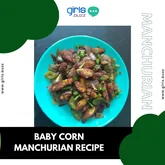Food habits to help with menstrual health
4 minuteRead

Menstrual Health and awareness is a pressing issue in the 21st century. As much as women have excelled in every field, menstrual health and awareness still remains a topic that has its taboos. India as a country lacks the normalization of periods and conversations around it. Pharmacies and local medical stores still wrap sanitary napkins in newspapers and girls still have to carry around napkins hidden in their purses. The stigma around menstrual health portrays it as a subject of shame. Menstrual awareness becomes a very vital step in such a hostile environment.
Studies show that about 70% of girls in India have never heard of menstruation before their first period.
With awareness come conversations and solutions.
The National Family Health Survey 2015-2016 estimates that of the 336 million menstruating women in India only 121 million (roughly 36 percent) women are using sanitary napkins.
Around 70% of women in India say that their family cannot afford sanitary pads.
In India, even today, women belonging mostly to rural areas have very little access to menstrual products and hygiene and the right nutrition for a healthy menstrual cycle.
Menstruation, physical as well as mental well-being and nutrition are all interconnected and need to be balanced in a holistic way. An imbalance in any of these can disturb the entire menstrual cycle which leads to overall disturbance in the body.
Nutrition specifically, plays a major role in keeping the menstrual cycle balanced and healthy. Eating healthy foods dozed with vitamins, proteins and fibre help keep our hormones in check. Hormonal imbalance not only disrupts a healthy cycle but also causes other issues like breakouts and rapid weight fluctuations.
Hence the question arises,
What should we consume to keep our menstrual health in check?
We actually got your back on this one!
Food for Menstrual Health: What You Need to Know
- Including seeds in your diet
Seed cycling is a very common and popular option that nutritionists and doctors suggest for maintaining menstrual regularity and health. Including different seeds in our diet can effectively regulate hormones. Seed cycling is often prescribed to women facing amenorrhea (absent period).
Sunflower seeds, flax seeds, pumpkin seeds, sesame seeds etc. are recommended by professionals. However, one should only include these seeds as prescribed by a professional and at the prescribed time phases.
2. The power of superfoods
Superfoods are packed with exceptional nutrient density and have many health benefits. Superfoods are rich in nutrients like vitamins, minerals and more. Superfoods like ginger can help with a heavy blood flow and regulate the menstrual cycle. Blueberries elevate period pain and eliminate toxins from the blood. Dark chocolate has a number of benefits when it comes to menstruation. It is packed with antioxidants and is also known for releasing the ‘feel-good’ hormones!
3. Right proportions matter
While eating healthy foods does the trick, it is also important that we eat in the right proportion and at the right time. Eating at irregular timings can disturb the body clock which causes a number of problems including a stressed digestive system.
Did you know?
Skipping meals is a major contributor to period problems!
Eating the right foods at the right time and in the right proportions is the way to go. Eating any food (including healthy foods) excessively has its own down sides. Therefore, with the right consultation as to what suits your body best, one should stick to a healthy food regime.
4. Don’t let your sweet tooth win
Processed foods often contain high amounts of sugar (which is also processed and refined). Sugary sodas and candies lead to a short term spike in blood sugar. Although sweet foods are comforting to some people during periods, sticking to healthier options like peanut butter or natural sugar from fruits is a better approach. Sugary foods also lead to gas and bloating which might leave one feeling worse!
5. Rainbow plate
A colourful plate is often a healthy one! Painting your plate in the colours of healthy fruits and vegetables can have a direct and positive impact on your lives.
Vegetables and fruits with different colours have their own special benefits.
For example- Green vegetables are high on the list as they are full of vitamins, minerals and fiber but low in calories. They make a perfect fit for your calorie conscious regime.
Fruits/veggies such as tangerines, lemon, amla etc. are high in vitamin C and increase estrogen levels which can maintain a healthy period.
Blue and purple fruits like berries are excellent antioxidants and kick out all the toxins from the body.
Playing with colours in your diet increases the presence of phytonutrients.
6. Nutrition supplements
The purpose of food supplements is to balance the nutrition that one is missing out on their daily diets. Supplements ensure that the measurable amounts of the right nutrition are included in your daily regime. Symptoms of PMS can be dealt with through the inclusion of supplements in our diet. However it is extremely important that supplements are taken only on the advice and prescription of a professional. Vitamin B6/B1/E/, Magnesium, Calcium, Zinc and Fish oil supplements are the most common ones that are suggested by doctors and health specialists.
7. Reduce the salt
Salty foods might add up to the bloating and acidity caused by periods. Like sugar, salt is hidden in most of the food we consume. So cooking your own food is the best option when it comes to regulating what goes into your plate. We often don't realise the amounts of salt we consume via processed and packaged foods. Most women facing PMS are advised to limit their salt consumption.
While these food habits can help maintain a healthy and regular period, sticking to these alone is not enough. Even after consuming the right food, periods can be a big challenge for those who lead a sedentary lifestyle. Body movement and regular exercise is very important when it comes to a holistic physical balance. Following a healthy routine and supplementing it with light exercise or a daily morning/evening walk can be a big step towards a healthier and balanced life.
Write, Record and Answer! Consume Unlimited Content! All you need to do is sign in and its absolutely free!
Continue with one click!!By signing up, you agree to our Terms and Conditions and Privacy Policy.










